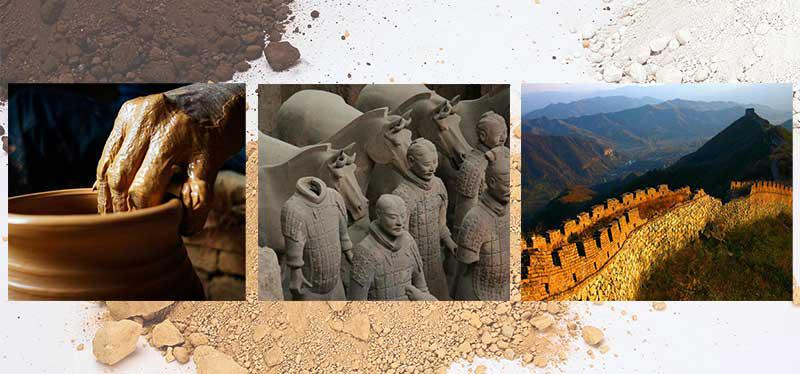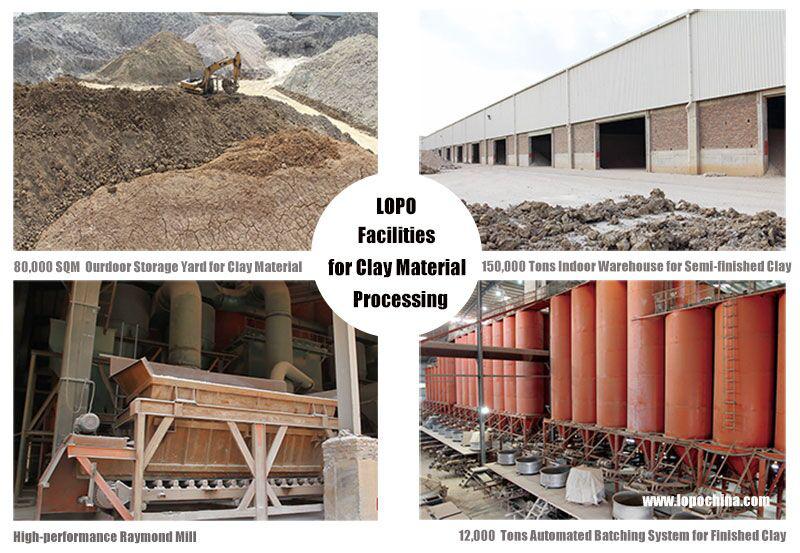Clay is the material first and most widely used for producing potteries/ceramics, ranging from ancient ceramic utensils, bricks of Great Wall of China, Terracotta Warriors and Horses to modern ceramics (artistic ceramics, domestic ceramics and architectural terracotta) that people frequently utilize nowadays. Terracotta cladding—one of the most eco-friendly building materials nowadays—is made of natural clay by using wet extrusion and high-temperature calcination processes. But not every kind of clay is suitable for producing terracotta facade. Clay is composed of clay minerals (such as iron oxide, feldspar, calcium carbonate, magnesium carbonate, silicon dioxide and alkali-metal compounds) as well as soluble salts and organics, the latter of which severely affect the quality of terracotta panels. The type and usability of clay are greatly dependent on its geological location. Different kinds of clay are different in chemical composition, mineral composition, particle size and plasticity. Those differences have a direct impact on the drying and calcination conditions. Today, the best clay in China is distributed in Jiangsu, Fujian and Guangdong provinces, etc.

Clay is one of the factors critical to the quality of terracotta panels. During the production cycle of terracotta cladding, the production line just takes relatively short time. In contrast, more time is spent on clay preparation, which includes raw-material selection, natural souring, batching and grinding.

As a professional manufacturer of terracotta exterior wall panels in China, LOPO fully understands the importance of clay for terracotta panels. To monitor the clay preparation process and make adjustment in a timely manner, LOPO planned an open-air stock yard of 80,000 square meters when it started planning for plants. The stockyard is used for storing 300,000 tons of natural clay. LOPO is also equipped with an indoor warehouse that can store 150,000 tons of semi-finished clay, and with a storage and automated batching system for 12,000 tons of finished clay mud. Meanwhile, with 5 large high-performance Raymond mill, LOPO is able to grind the clay to the desired particle sizes, which guarantees the maximum extent of physical and chemical changes in the process of clay calcination. These facilities give LOPO the maximum control over the quality of clay, which not only ensures the consistency and stability of clay to the most extent, but also enables the clay to sour naturally and thoroughly. As a result, for large-scale terracotta façade panel projects, LOPO obviously has its competitive advantage over most of other manufacturers when it comes to quality, color stability and lead time of terracotta panels.